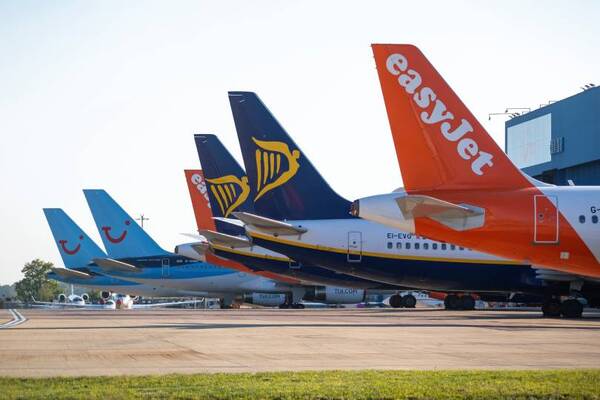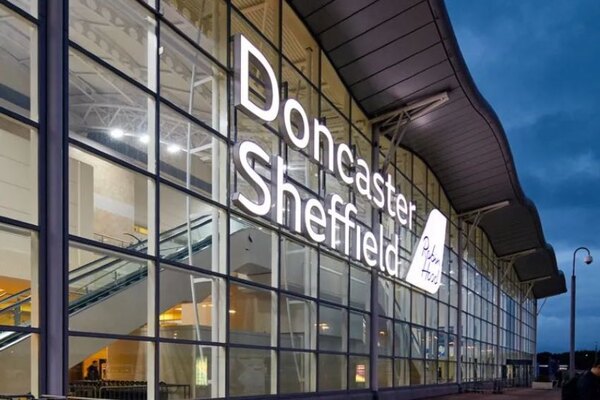How travel has returned to being a growth sector – and why its bullishness is justified
 Gary Noakes
Gary NoakesAnyone who is still wondering whether travel has emerged from the shadow of Covid need only take a deep dive into the September Atol renewals for reassurance.
The figures not only show a record number of authorised packages, but also a reversal of the fall in the number of Atol-holders. Moreover, the industry’s changing structure means the newer players – OTAs – are expanding without threatening its overall stability.
In October, the CAA authorised 31.6 million Atol-protected packages for the period through to the end of September 2024. This autumn authorisation is a 20% year-on-year increase, and a leap from a pre-Covid high of 28 million.
“It’s the highest I’ve ever known,” Martin Alcock, director of Atol consultancy Travel Trade Consultancy, tells TTG. “The growth numbers are incredible for some. It underlines this feeling of bullishness.”
Some fear a price war or worse next year given the current climate of high inflation and cost of living, plus conflict in the Middle East and Ukraine that could suppress demand.
But Alcock stresses how different the situation is compared with a decade ago. Then, he explains, there were more integrated groups with their own aircraft that needed to be filled, and with Monarch Airlines and Excel Airways selling seats to the trade.
Now, there are fewer players with fixed costs and less chance of seat dumping and price wars.
The slack left by Thomas Cook’s demise in 2019 disappeared as soon as Covid abated, and the pre-Covid high of 28 million Atol-licenced passengers is now surpassed. This had dipped to 25 million following Cook’s collapse before a trough of 16.9 million during the pandemic.
Last year, the market recovered to 26.2 million before reaching this year’s all-time high.
Joanna Kolatsis, director of Themis Advisory, is another optimist: “The latest renewals really are testament to how resilient the travel industry is,” she says.
“We all expected some changes in the Atol holders list post pandemic as we returned to the ’new normal’, but the speed at which the industry has bounced back and grown is reflective of the hard work everyone put in to get their businesses back on track.
"The travel industry is a growth sector, and I hope the government starts to give it the recognition it deserves.”
Jet2holidays, Tui and easyJet holidays all increased their Atols sizeably in September, but hot on their heels are the OTAs, many of which did not exist 10 years ago.
In fact, half the top 10 Atol brands are now OTAs, which can sell hotel rooms and flights on a more ad-hoc basis than conventional operators.
Alcock points to Booking.com, which in September 2022 held an Atol for 285,000 passengers, making it the ninth biggest Atol brand. A year later, it is authorised for 2.4 million passengers and sits in fourth place.
However, Booking.com’s ambition does not alarm him. “It’s not like they’ve bought a load of seats," he says. "If bookings don’t materialise, it’s not a disaster like it was 10 years ago.”
The OTAs may be piling on capacity, but a potential barrier to growth in Europe could be an unwillingness by airlines like easyJet to sell them seats or in Ryanair’s case, to work with them at all.
This is likely to mean no price war in Europe and OTA growth centred on long-haul instead, fuelled by their already vast turnover.
In terms of consolidation, the top 10 Atol holders appear to be closing their grip on the market slightly – they currently account for 24 million of all licenced passengers (66%), whereas in 2018, the top 10 accounted for 16 million of 26 million (62.5%).
The effect is more pronounced looking at the top 20, where the proportion of authorised seats has grown from 74% to 84% in the past four years. “Outside the top 20, it’s a lot harder," Alcock warns. "If you’re mass market, volume is in fewer and fewer hands."
’Positive market statement’
However, the picture is still one of industry expansion beneath the top 20. The decline in the number of Atol-holders over the past few years has reversed, with the total growing from 1,580 to 1,600.
Alcock says the turnaround began at the last March renewal. “It is small growth, but it has definitely reversed the decline.”
He adds there had been issues with small companies accessing investment during the pandemic, but otherwise the figures were “a really positive statement for the market” with demand and pricing strong and "positive" feedback from clients.
“There is not any sign of what you would call a crash,” he adds, while cautioning: “Operators are just starting to need to be a bit smarter; whereas this time last year (with exceptional demand), they just turned off their marketing.”
Sign up for weekday travel news and analysis straight to your inbox

Gary Noakes
Supplier Directory
Find contacts for 260+ travel suppliers. Type name, company or destination.













